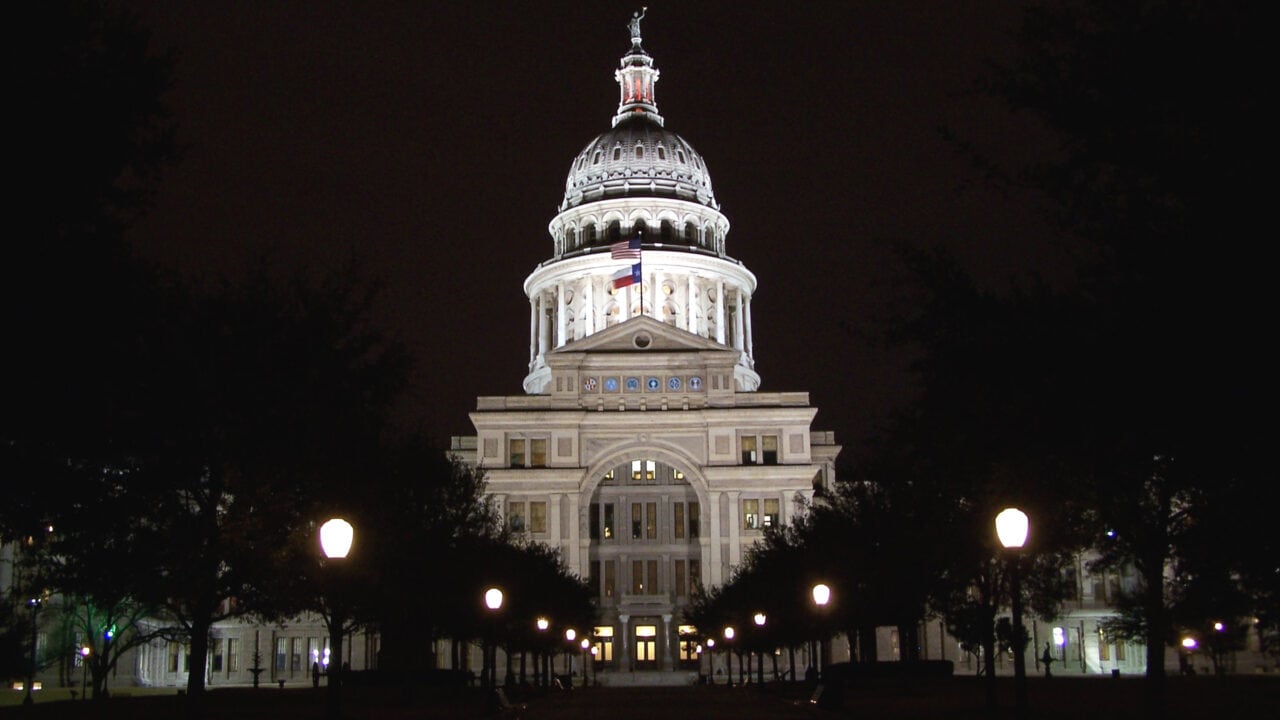 Texas Capitol Night by Larry D. Moore is licensed under CC BY 4.0, via Wikimedia Commons
Texas Capitol Night by Larry D. Moore is licensed under CC BY 4.0, via Wikimedia Commons
After the recent failure of school choice legislation in the Texas House of Representatives, it’s now clear that the top conservative achievement of 2023 in Texas is the enactment of HB 2127, preemption legislation that will protect Texans from the imposition of costly local regulations.
The purpose of HB 2127, as explained in the bill’s text, is to “provide statewide consistency by returning sovereign regulatory powers to the state where those powers belong.” HB 2127 establishes eight fields in which local governments are not allowed to regulate in excess of state standards. Those fields include agriculture, commerce, finance, labor, natural resources, occupations, and property.
“Texas is currently running under a patchwork of inconsistent regulations, and this is harming business growth and often comes into conflict with the rights of private citizens,” noted the Texas Public Policy Foundation of the need for HB 2127. “This legislation seeks to establish regulatory consistency across the state by precluding municipalities and counties from adopting or enforcing excessive and inconsistent regulations.”
“We want those small-business owners creating new jobs and providing for their families, not trying to navigate a byzantine array of local regulations that twist and turn every time they [cross city limits],” Texas Representative Dustin Burrows (R), author of HB 2127, said of the impetus for the HB 2127, which was vehemently opposed by local government officials, some of whom are still working to overturn the bill post-enactment. Governor Greg Abbott (R) signed the bill into law in June. The City of Houston filed a lawsuit in July seeking to overturn HB 2127. In its lawsuit, Houston argues that House Bill 2127 violates the Texas State Constitution’s Home Rule provision.
Houston Mayor Sylvester Turner (D) claims “House Bill 2127 creates a one-size-fits-all statewide regulation scheme, with no attempt to address areas of concern that prompted cities to pass laws in response to constituents’ requests.”
“Burrows weighed in on the legal challenges against his bill, blasting the involvement of Local Solutions Support Center – a California organization that bills itself as a national hub to counter state laws that undermine local governments’ ability to self-govern – in the lawsuit,” ABC 13 reported shortly after Houston’s lawsuit was filed.
“I am not surprised that leftist cities are working with activists from California to try and slow down the implementation of the Texas Regulatory Consistency Act,” Rep. Burrows tweeted in response to Houston’s lawsuit. “I have confidence this bill will become law and help ensure Texas’ economy thrives for future generations.”
A Travis County judge issued a ruling on August 30 siding with Houston and striking down HB 2127. Texas Attorney General Ken Paxton, however, immediately appealed that ruling, which ensures HB 2127 will take effect while the case goes through the appeals process.

